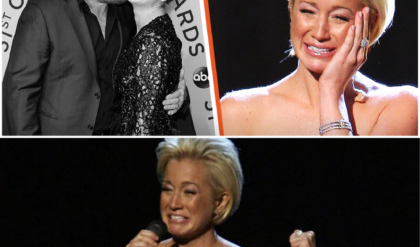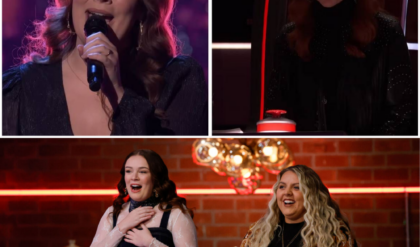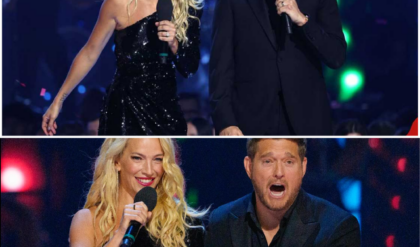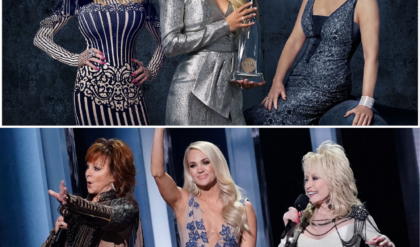Main Content
In the mist-shrouded waterways of Scotland, where the lochs whisper secrets and the currents carry the weight of untold sins, Annika emerges as a beacon of ingenuity in the crowded field of crime dramas. This blackly comic procedural, created by Nick Walker and starring the incomparable Nicola Walker in the titular role, deftly navigates the treacherous waters between high-stakes investigation and heartfelt domestic turmoil. Originally adapted from the BBC Radio 4 series Annika Stranded—a Norwegian-set monologue-driven affair that showcased Walker’s voice as the wry detective—the television iteration transplants the action to Glasgow’s fictional Marine Homicide Unit (MHU), infusing it with visual splendor, ensemble dynamics, and a fourth-wall-breaking intimacy that feels refreshingly audacious. Debuting on UKTV’s Alibi in 2021, the show shattered viewing records for the channel, becoming its most-watched drama in over seven years. Its migration to BBC One in 2023 and 2025 has only amplified its reach, drawing in audiences craving a blend of cerebral puzzles, sardonic humor, and emotional depth that restores faith in the genre’s ability to surprise.
The series unfolds across six taut episodes per season, each a self-contained case-of-the-week laced with overarching personal arcs that deepen with every ripple. At its core, Annika follows Detective Inspector Annika Strandhed, a neurodivergent force of nature who helms the MHU—a specialist squad dedicated to unraveling the gruesome murders that bob to the surface in Scotland’s rivers, canals, and seas. Annika’s world is one of perpetual motion: she’s a speedboat enthusiast zipping across choppy waters, a single mother navigating the tempests of teenage rebellion, and a detective whose mind races ahead of the evidence, often confiding her chaotic inner monologue directly to the viewer. This Fleabag-esque direct address isn’t gimmicky; it’s a lifeline, allowing Annika to unpack her anxieties, ethical quandaries, and literary allusions in real time, turning the audience into reluctant accomplices in her quest for truth.
Season one catapults us into the unit’s fledgling days, with Annika assembling her eclectic team amid a cascade of watery enigmas. From a decapitated rower fished from the Clyde to a submerged skeleton entangled in fishing nets, the cases evoke the eerie isolation of Scotland’s landscapes—filmed against the rugged beauty of Loch Lomond and the urban grit of Glasgow’s docks. But Annika transcends mere procedural beats; it’s a character study wrapped in a mystery. Annika’s professional triumphs clash with personal tempests: her strained bond with daughter Morgan, a precocious teen grappling with identity and independence; flirtations with ex-lover Jake that threaten to upend her fragile equilibrium; and the ghost of an estranged father whose sporadic returns stir long-buried resentments. The MHU itself is a pressure cooker—colleagues who double as surrogate family, their banter a buoyant counterpoint to the macabre discoveries.
By season two, aired on Alibi in 2023 and gracing BBC One in August 2025, the stakes swell like an incoming tide. The unit, now battle-tested, dives into even more labyrinthine crimes: a billionaire entrepreneur drowned in his own shark tank, a deepfake scandal that torpedoes Annika’s reputation, and a barge inferno linking back to a cold-case diving “accident.” These investigations expose societal undercurrents—corporate greed, digital deception, familial vendettas—while Annika’s personal narrative surges forward. Revelations from the prior season’s finale ripple outward: Morgan learns a shattering truth about her parentage, forcing awkward triangulations with key figures in Annika’s orbit. Romantic entanglements knot tighter, professional rivalries simmer, and Annika’s direct appeals to the camera grow more desperate, blurring the line between sleuth and supplicant.
What sets Annika apart is its tonal tightrope walk. Director Alex Holmes (known for The Essex Serpent) and the writing team craft episodes that pulse with urgency—pulse-pounding chases across rain-slicked piers, tense interrogations in fog-bound boathouses—yet linger on quiet horrors, like the psychological toll of exhuming submerged corpses. The production design is a triumph: the MHU’s cluttered office, awash in nautical charts and half-eaten takeaways, mirrors Annika’s cluttered psyche, while the score by Brooke Blair and Robin Fox weaves haunting folk motifs with electronic unease. Critically, the series has been hailed as a “restoration of faith in TV drama,” earning praise for Walker’s “mesmerizing” lead and the show’s refusal to devolve into formula. With a 100% Rotten Tomatoes score for its emotional authenticity and a devoted fanbase clamoring for resolution amid renewal uncertainties, Annika proves that the best mysteries aren’t just solved—they haunt, they heal, and they hook you for the long haul.
Streaming on BBC iPlayer with episodes dropping weekly on BBC One, the 2025 airing coincides with a surge in “cozy crime” revivals, yet Annika defies the label with its sharp edges and soul-baring vulnerability. It’s a series that reminds us: in the end, every case washed ashore is a story begging to be heard, and Annika Strandhed is the unflinching voice to tell it.
Actors
Nicola Walker commands Annika like a captain steering through a storm, her portrayal of DI Annika Strandhed a tour de force of wit, weariness, and unyielding curiosity. A veteran of British television’s finest hours—Unforgotten‘s haunted DCI Cassie Stuart, The Split‘s razor-sharp family lawyer Hannah Stern—Walker here channels a detective who’s equal parts brilliant and brittle. Annika isn’t the stoic sleuth of yore; she’s a whirlwind of tics and tangents, her direct-to-camera asides delivered with a conspiratorial twinkle that masks deeper insecurities. Walker’s physicality sells it: the restless fidgeting with boat keys, the sudden bursts of eloquence quoting Ibsen or Stevenson, the soft crumple when confronting maternal failures. It’s a performance that’s “exceptional,” as critics rave, blending vulnerability with verve to make Annika not just relatable but revolutionary—a neurodivergent lead whose quirks fuel, rather than hinder, her genius. Off-screen, Walker has spoken of the role’s resonance, drawing from the radio origins where her voice alone carried the weight; on TV, she elevates it into something profoundly visual and visceral.

The ensemble orbits Walker with impeccable chemistry, each actor etching distinct grooves into the MHU’s dysfunctional family dynamic. Jamie Sives shines as DS Michael McAndrews, Annika’s steadfast second-in-command and reluctant diver, whose quiet competence hides a well of unspoken longing. Sives (Guilt, Triage) brings a brooding intensity to Michael—his haunted eyes and clipped Scots brogue conveying a man tethered to Annika by professional loyalty and something far more tangled. As the season two arcs deepen, Sives masterfully unspools Michael’s paternal instincts, turning subtle gestures—like a shared glance over case files or a hesitant shoulder pat—into emotional lightning rods. It’s a slow-burn revelation that cements him as the show’s moral anchor, his arc a poignant counterpoint to Annika’s chaos.
Katie Leung (Harry Potter‘s Cho Chang, The Nest) imbues DC Blair Ferguson with forensic ferocity and understated steel. As the unit’s analytical powerhouse, Blair deciphers tidal patterns and blood spatter with surgical precision, her no-nonsense demeanor a balm against the team’s volatility. Leung’s performance evolves from season one reticence to season two assertiveness, her character’s cultural clashes and quiet ambitions adding layers of texture; a pivotal deepfake subplot in the second run showcases her vulnerability, transforming Blair from sidekick to fully fleshed survivor. Ukweli Roach (Blindspot, The Midwich Cuckoos) rounds out the core as DS Tyrone Clarke, the newcomer whose infectious optimism and streetwise savvy inject levity into the gloom. Roach’s Tyrone is the heart of the banter brigade—his wide grin disarming suspects, his asides to Annika sparking comic gold—yet he grounds the role in pathos, navigating career crossroads and romantic fumbles with boyish charm and growing gravitas.
Supporting the leads is a gallery of guest stars who elevate each episode’s standalone menace. Silvie Furneaux captivates as Morgan Strandhed, Annika’s whip-smart daughter whose teenage defiance masks a yearning for connection; Furneaux (Red Rose) nails the push-pull of adolescence, her scenes with Walker crackling with authentic awkwardness. Kate Dickie (The Cry, Game of Thrones) looms large as DCI Diane Oban, the MHU’s sardonic superior whose tough-love oversight keeps the unit afloat; Dickie’s gravelly authority and wry deflections make her a fan-favorite foil. Season two welcomes Claudia Jessie (Bridgerton) as Harper Weston, an Edinburgh liaison whose motorcycle-riding bravado clashes thrillingly with Annika’s idiosyncrasies, while Paul McGann (Doctor Who) adds brooding depth as a shadowy informant.
Filmed on location in Scotland’s windswept wilds, the cast’s immersion fosters organic interplay—improvised boat-side ribbing, rain-soaked stakeouts that bleed into off-hours bonding. Walker’s directorial eye in select scenes, combined with Holmes’ fluid camerawork, captures this alchemy, making Annika‘s performers feel like a lived-in crew rather than scripted cogs. In a landscape of interchangeable cop shows, this ensemble doesn’t just solve crimes—they inhabit them, restoring our faith in drama’s power to illuminate the human depths beneath the waves.
Plot Twists
Warning: This section contains major spoilers for Annika seasons 1 and 2. If you’re not caught up, navigate away—these revelations will submerge the surprises.
Annika masterfully deploys twists not as fireworks but as undertows, pulling viewers deeper into its emotional and investigative currents. Nick Walker’s scripting, laced with literary nods from Greek myths to Gothic tales, ensures each pivot feels inevitable in retrospect, reframing cases and characters with devastating precision. The series thrives on misdirection—red herrings bobbing like debris—while personal bombshells erupt from the froth of procedural routine, leaving Annika’s fourth-wall pleas echoing with newfound desperation.
Season one’s finale detonates the paternity puzzle that’s simmered since the pilot. Amid the chaos of a kidnapping plot tied to a severed-head case, Annika rescues a captive Morgan from the clutches of a deranged suspect, Lee, whose explosive vendetta nearly claims them both. As the dust settles—literally, with Annika’s car reduced to wreckage—Michael surprises her with a pork pie “birthday cake” for Morgan’s 16th, a gesture heavy with subtext. Their fireside chat veers into treacherous waters: Michael probes if Morgan ever mentions her father, and Annika’s evasive “no” hangs like fog. But in a classic Strandhed sleight-of-hand, she swivels to the camera post-scene, whispering, “But she is now,” confirming Michael’s hidden role as Morgan’s dad. This isn’t mere soap; it’s a seismic shift, retroactively tinting every loaded glance and protective instinct between the colleagues. Annika’s direct address, once playful, turns poignant—her plea for understanding underscoring the terror of upending her daughter’s world. The twist resolves the season’s emotional core while seeding season two’s familial fractures, transforming the MHU from workplace into a minefield of half-truths.
The sophomore run amplifies the audacity, weaving institutional intrigue with intimate betrayals. Episode three’s deepfake debacle is a tech-tinged gut-punch: Annika’s post-conference presser—meant to rally public support for a shark-tank drowning probe—morphs into a viral abomination, her likeness spewing racist vitriol that tanks her credibility. The culprit? Not the expected cyber-villain from the billionaire’s orbit, but a jilted colleague harboring grudges over a botched promotion. This digital doppelganger forces Annika to chase her own shadow, interrogating allies who now eye her with suspicion, and culminates in a rain-lashed confrontation where the forger confesses not from malice but misguided loyalty. The twist skewers modern paranoia—deepfakes as the new red herring—while exposing Annika’s isolation; her camera confessions grow frantic, begging viewers, “Who do you believe?” It dovetails with the case’s resolution, where the victim’s “accidental” drowning reveals corporate sabotage, mirroring Annika’s eroded trust.
Mid-season, episode four’s barge blaze ties back to a cold case with blistering efficiency. The fire claims Jacqueline Drummond, a retired DI whose past conviction of felon Gary Nair screams revenge motive. Annika’s team pursues Nair’s trail—parole violations, anonymous tips—only for CCTV to alibi him, shifting suspicion to Drummond’s daughter Imogen, whose grief curdles into rage over inherited debts. But the real incendiary? A canister matching Drummond’s accelerant, unearthed in a submerged evidence locker, points to an inside job: her former partner, coerced into silence years prior. This pivot flips the “ex-con’s grudge” trope, unmasking institutional cover-ups that echo Annika’s own paternal ghosts, and forces a reckoning with complicity—Michael’s dive uncovers the tampered gear, his hands shaking as buried MHU sins surface.
The season two finale orchestrates a triple-whammy that rivals Greek tragedy, invoking Prometheus as Annika muses on stolen fire and divine retribution. The probe into Drummond’s blaze links to a diving “accident” from decades past—Jackie’s brother, presumed drowned in a routine op. Leads dead-end until forensics dredge up tampered oxygen valves, fingering a shadowy figure: Annika’s estranged father, Magnus. He’s not just visiting for reconciliation; his sudden Glasgow arrival coincides with efforts to torch evidence linking him to the sabotage, a desperate bid to shield his complicity in the original cover-up. As Annika pieces it—Magnus’s evasive alibis, a pilfered key from her home—the camera catches her horror: “He came for family… and it was me all along.” She confronts him in a fog-choked boathouse, gun drawn, but he flees into the night, whispering, “I did it for us.” The screen blacks out on Annika’s tear-streaked plea—”Help me”—leaving her faith in blood ties incinerated.
These convolutions—paternity shocks, digital phantoms, paternal perfidy—aren’t gratuitous; they’re thematic tidal waves, eroding Annika’s certainties and mirroring the waterway murders’ fluidity. In a genre glutted with predictable payoffs, Annika‘s twists demand reevaluation, turning episodic puzzles into a serialized soul-search that leaves you adrift, craving the next swell.





